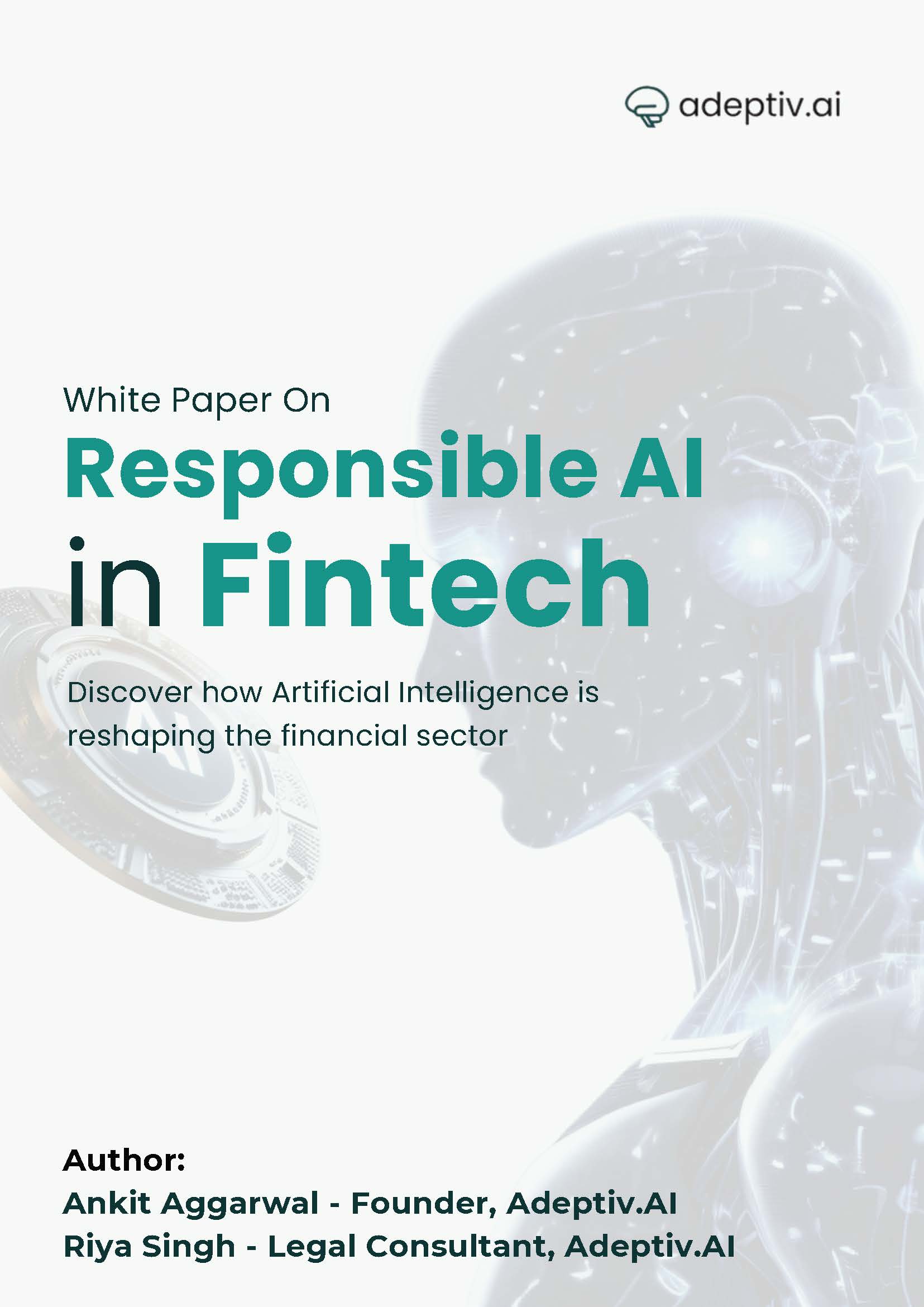At a Glance
- Discover how Ethical AI powers content moderation, personalization, and advertising on social media platforms—and the ethical risks involved.
- Understand why Responsible AI and a strong AI governance framework are essential for protecting user privacy, fairness, and freedom of expression.
- Learn about the regulatory landscape in the U.S. and Europe (e.g., CCPA, GDPR, EU AI Act) and the compliance pressures facing platforms.
- Explore best practices and the role of AI governance platforms in delivering audit-ready monitoring, transparency, and trust in digital interactions.
The Role of AI in Social Media
Artificial Intelligence (AI) is deeply embedded in social media ecosystems. Platforms use AI for:
1. AI-Driven Content Moderation
Automated systems analyze vast volumes of user-generated content—text, images, video—to detect hate speech, violence, nudity, and other policy violations. Natural language processing (NLP) and computer vision techniques enable scalability. Yet challenges remain: high-impact decisions, false positives, bias in training data, and a lack of human oversight in ambiguous cases. A well-structured AI governance framework is required to embed transparency and fairness into moderation systems.
2. Algorithmic Recommendations and User Engagement
AI algorithms curate user feeds and suggest content by analyzing behavior patterns and demographics. This drives engagement and keeps users active. However, personalized feeds can result in echo chambers, filter bubbles, or amplify misinformation. Without oversight, these systems may manipulate attention in ways that undermine trust. An AI governance & ethics approach ensures that algorithmic decisions align with democratic values and user well-being.
3. AI in Personalized Advertising and Targeted Marketing
AI enables social media platforms and advertisers to deliver highly targeted campaigns by mining vast behavioral data. Precision targeting increases ad performance—but raises concerns about privacy, consent, and hidden profiling. Deploying a dedicated AI governance platform helps platforms comply with privacy laws, maintain transparent advertising practices, and protect user rights.
4. Challenges of Misinformation and Deepfake Detection
AI is both the problem and the solution to misinformation. Deepfakes, synthetic media, and manipulated content challenge trust in online platforms. Detection systems must evolve quickly to keep pace. A comprehensive governance structure supports adaptive monitoring and real-time auditing to mitigate these risks.
Ethical Concerns in AI-Driven Social Media
1. Data Privacy and Unauthorized Data Collection
Social media AI systems often collect extensive user data—including biometrics, behavioral patterns, emotions—frequently without full user awareness or consent. Aggregated metadata (location, timestamps, interactions) can enable invasive profiling. Regulation such as Europe’s GDPR and California’s CCPA addresses these risks, but global platforms must navigate a fragmented landscape. In this context, a mature AI governance framework ensures data practices remain transparent, secure, and fair.
2. Algorithmic Bias and Discrimination
Bias emerges when AI systems are trained on unrepresentative data or developed by non-diverse teams. Facial recognition tools, for example, show higher error rates for certain racial groups. In social media moderation, Black English or dialects may be flagged unfairly. Without continuous auditing, discriminatory filters persist. Embedding Responsible AI into model lifecycle—using fairness metrics, transparency reports, and inclusive team practices—reduces harm.
3. Transparency and Explainability of AI Decisions
Opaque AI systems erode user trust. Users and regulators question why certain content is recommended or moderated. Frameworks such as Singapore’s Model AI Governance Framework emphasize explainability. A strong governance platform includes explainability tools (model cards, decision logs) so stakeholders understand what AI does and why.
4. Psychological Impact of AI-Driven Engagement
Algorithms that reward attention can exacerbate addiction, anxiety, and social-comparison stress—especially among younger users. The infamous Microsoft “Tay” chatbot illustrates how rewarding engagement without proper guardrails can produce harmful results. Ethical social media platforms must align their AI systems with user well-being, and this requires an overarching process of AI governance & ethics, not just technical fixes.
Regulatory Frameworks: USA vs Europe
1. USA: Federal and State-Level Regulation
In the U.S., there’s no single federal AI law—but several federal and state statutes govern data and platform behaviors. The FTC, HIPAA, GLBA, COPPA regulate data usage, but AI-specific oversight remains fragmented. California’s CCPA/CPRA grants consumer rights over data use and has introduced the California Privacy Protection Agency (CPPA). Colorado and Virginia also require transparency in AI-driven decisions. For social media platforms, this patchwork creates complexity. An AI governance framework that supports cross-jurisdictional compliance is critical.
2. Europe: GDPR and the EU AI Act
Europe has led the way with robust governance. The GDPR mandates explicit consent, data minimization, user-access rights, and penalties up to €20 million or 4% of global turnover. The upcoming EU AI Act (expected enforcement from 2025-26) categorizes AI systems by risk:
- Unacceptable risk systems (e.g., social scoring) are banned.
- High-risk systems (including social media content moderation, targeted advertising) require transparency, registration, and human oversight.
- Fines can reach €35 million or 7% of turnover. Social media companies must implement transparent AI systems and register them. A mature AI governance platform supports these obligations.
Comparison: Enforcement and Scope
| Region | Scope & Uniformity | Penalties | Oversight Bodies |
| Europe | Uniform across EU | Very high (€20m–€35m+) | DPAs, EDPB |
| USA | Fragmented by state/sector | Lower, less predictable | FTC, state AGs, CPPA |
For global social media platforms, aligning with a full-stack AI governance framework is far better than retro-fitting.
Best Practices for Ethical AI in Social Media
1. Privacy-Preserving Techniques
Using differential privacy (introducing noise into data sets) and federated learning (keeping raw data on devices rather than centralized servers) enhances user privacy while allowing AI to learn. These technologies align with the principles of Responsible AI and support platforms’ data governance.
2. Transparent Design and Explainability
Provide users with clear dashboards that explain why content was moderated or why they saw specific ads. Explainable AI (XAI) tools like SHAP or LIME, or semantic ontologies, help articulate machine decisions. This is a core component in an AI governance & ethics framework.
3. Fairness and Bias Mitigation
Regular audits of datasets for skews, diverse team representation, fairness-aware algorithms, and periodic third-party reviews ensure outcomes remain equitable. For example, moderate content that uses non-standard English dialects requires special attention.
4. Governance Infrastructure
Create cross-functional ethics boards, AI steering committees, model registries, incident-response plans, and audit trails. Platforms that embed these controls into a comprehensive AI governance framework are better positioned to scale responsibly.
Why It Matters for Social Media Platforms
AI is inseparable from social media’s architecture. But unchecked AI risks shallow user trust, regulatory penalties, and brand damage. Ethical AI design combined with structural governance:
- Builds user trust and protects reputation
- Enables compliance with GDPR, CCPA, EU AI Act
- Supports scalable innovation without sacrificing ethics
Rather than treating governance as a one-time effort, consider it foundational. Integrate Responsible AI into every phase of ethical AI lifecycle, and deploy a formal AI governance framework that endures.
Final Thought
The convergence of AI and social media offers immense potential—but also significant ethical AI and regulatory risk. Platforms that champion Responsible AI and implement a resilient AI governance framework not only protect user rights but also build sustainable growth and innovation. In an era where trust is currency, governance is your competitive edge.
FAQs
Q1. What is the difference between Responsible AI and AI Governance?
Responsible AI refers to ethical AI principles (fairness, transparency, accountability, privacy, security) embedded into AI systems. AI Governance is the operational system—policies, processes, oversight—that ensures those principles are consistently enacted across an organization.
Q2. Why do social media platforms need an AI governance platform?
Because social media employs numerous ethical AI models (recommendation, moderation, advertising) that affect millions of users, a dedicated platform supports monitoring, auditing, and managing those models for compliance, bias mitigation, transparency, and regulatory readiness.
Q3. What are the major regulations for social media AI in 2025?
Key frameworks include Europe’s GDPR and the EU AI Act (risk-based regulation of AI systems) and in the U.S., laws like CCPA/CPRA, state-level ethical AI transparency requirements (Colorado, Virginia), and FTC guidance on unfair practices.
Q4. How can platforms mitigate bias in AI-driven moderation or personalization?
By curating representative training data, applying fairness checks, using explainable model techniques, auditing decisions across demographic groups, and building human-in-the-loop controls—within a broader AI governance & ethics framework.
Q5. What is ‘shadow AI’ and why is it a risk in social media governance?
Shadow AI refers to unauthorized or untracked ethical AI systems deployed by teams without oversight. In social media platforms, this can lead to unmanaged personalization, hidden bias, or compliance gaps. An inventory and risk classification step in an AI governance framework helps detect and control these systems.



